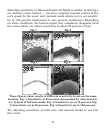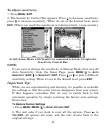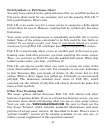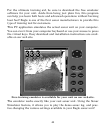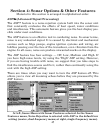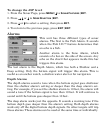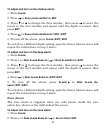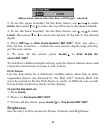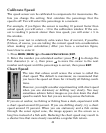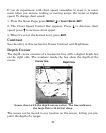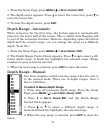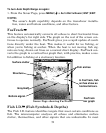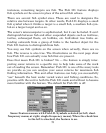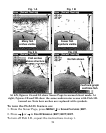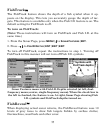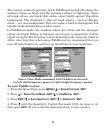
49
Calibrate Speed
The speed sensor can be calibrated to compensate for inaccuracies. Be-
fore you change the setting, first calculate the percentage that the
speed is off. You will enter this percentage in a moment.
For example, if you figure the sensor is reading 10 percent faster than
actual speed, you will enter – 10 in the calibration window. If the sen-
sor is reading 5 percent slower than true speed, you will enter + 5 in
the window.
Perform your test in relatively calm water free of current, if possible.
(Unless, of course, you are taking the current speed into consideration
when making your calculation.) After you have a correction figure,
here's how to enter it:
1. Press
MENU
|
MENU
|↓ to
C
ALIBRATE
W
ATER
S
PEED
|
ENT
.
2. Enter the number you calculated earlier: press ↑ or ↓ to change the
first character (+ or –), then press → to move the cursor to the next
number and repeat until the percentage is correct, then press
EXIT
.
Chart Speed
The rate that echoes scroll across the screen is called the
chart speed. The default is maximum; we recommend that
you leave the speed set there for virtually all fishing condi-
tions.
However, you might consider experimenting with chart speed
when you are stationary or drifting very slowly. You may
sometimes achieve better images as you slow down the chart
speed to match how fast you are moving across the bottom.
If you are at anchor, ice fishing or fishing from a dock, experiment with
a chart speed around 50 percent. If you are drifting slowly, try a chart
speed around 75 percent. When you are stationary and a fish swims
through the sonar signal cone, the image appears on the screen as a
long line instead of a fish arch. Reducing the chart speed may result in
a shorter line that more closely resembles a regular fish return.



